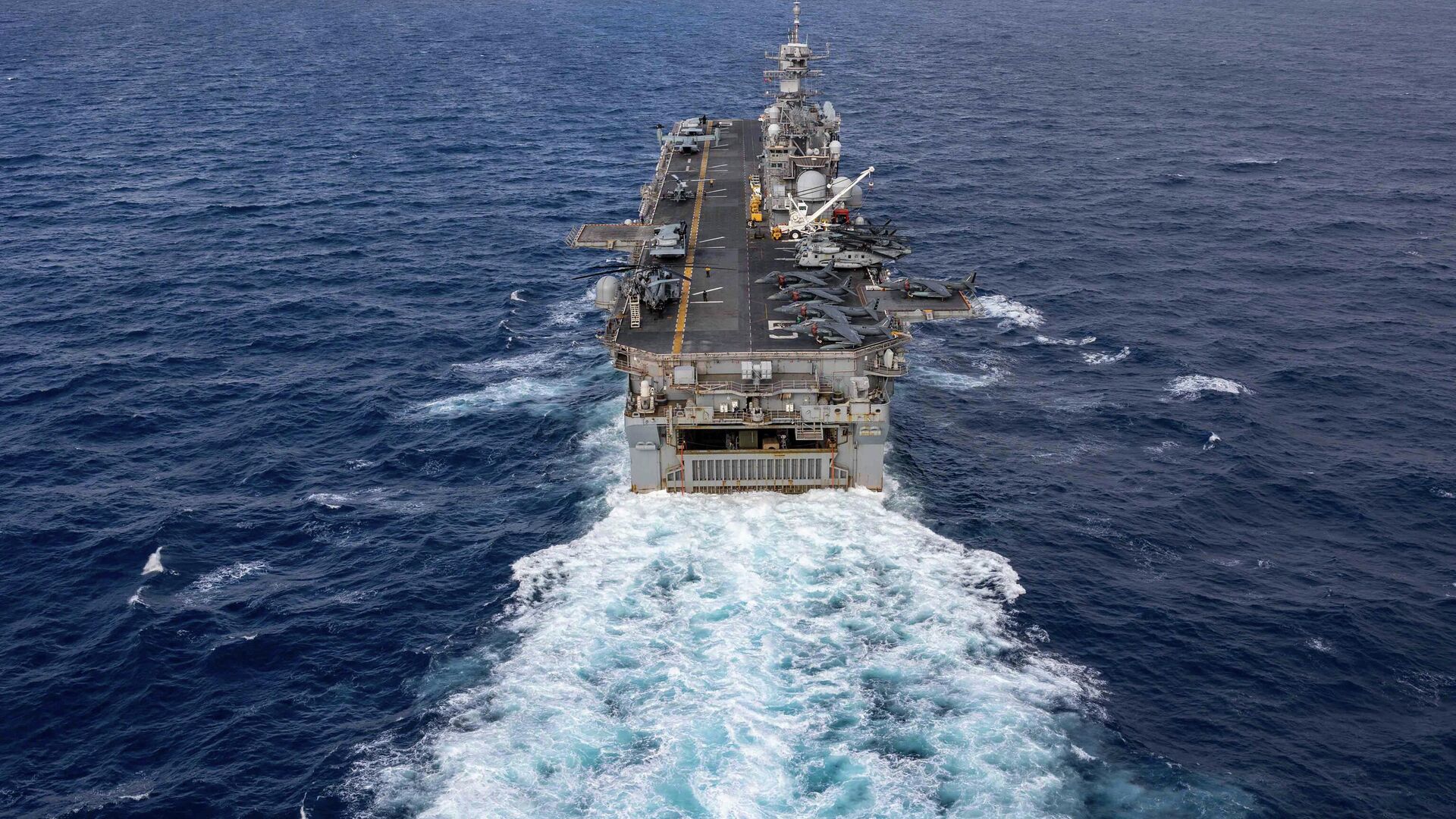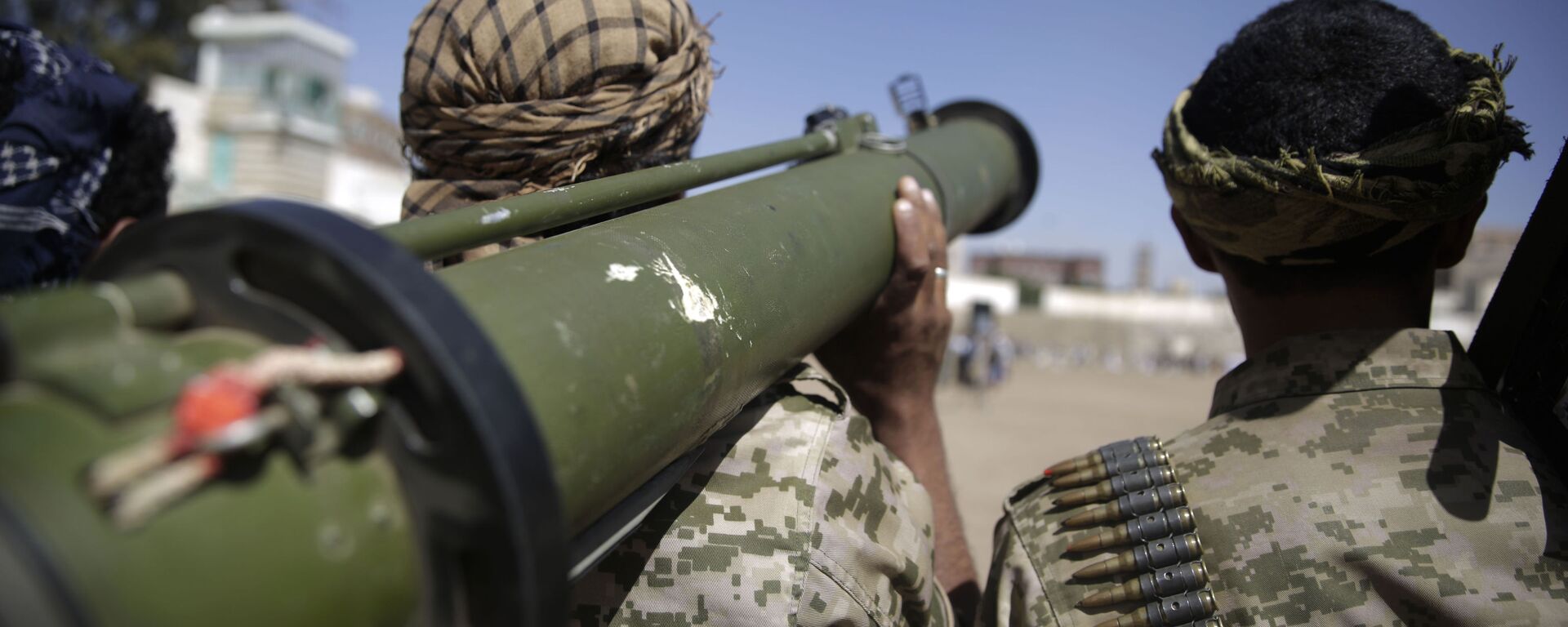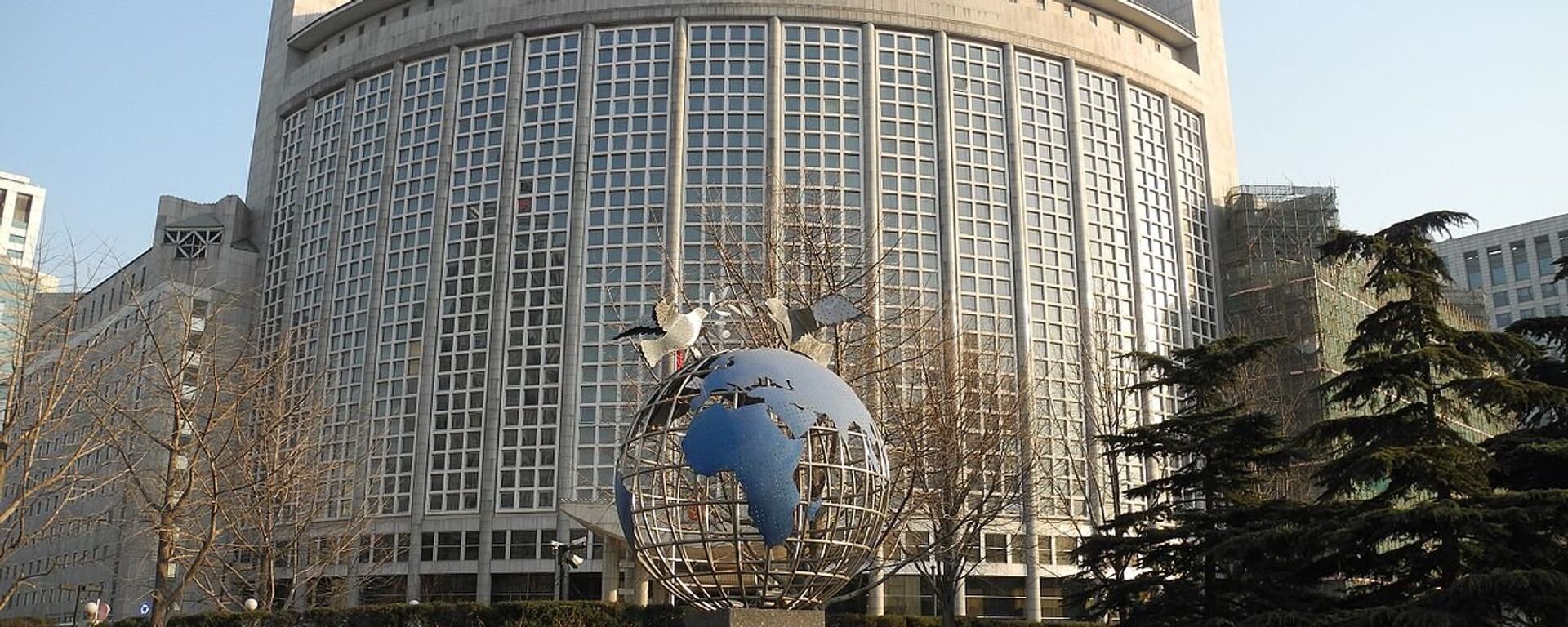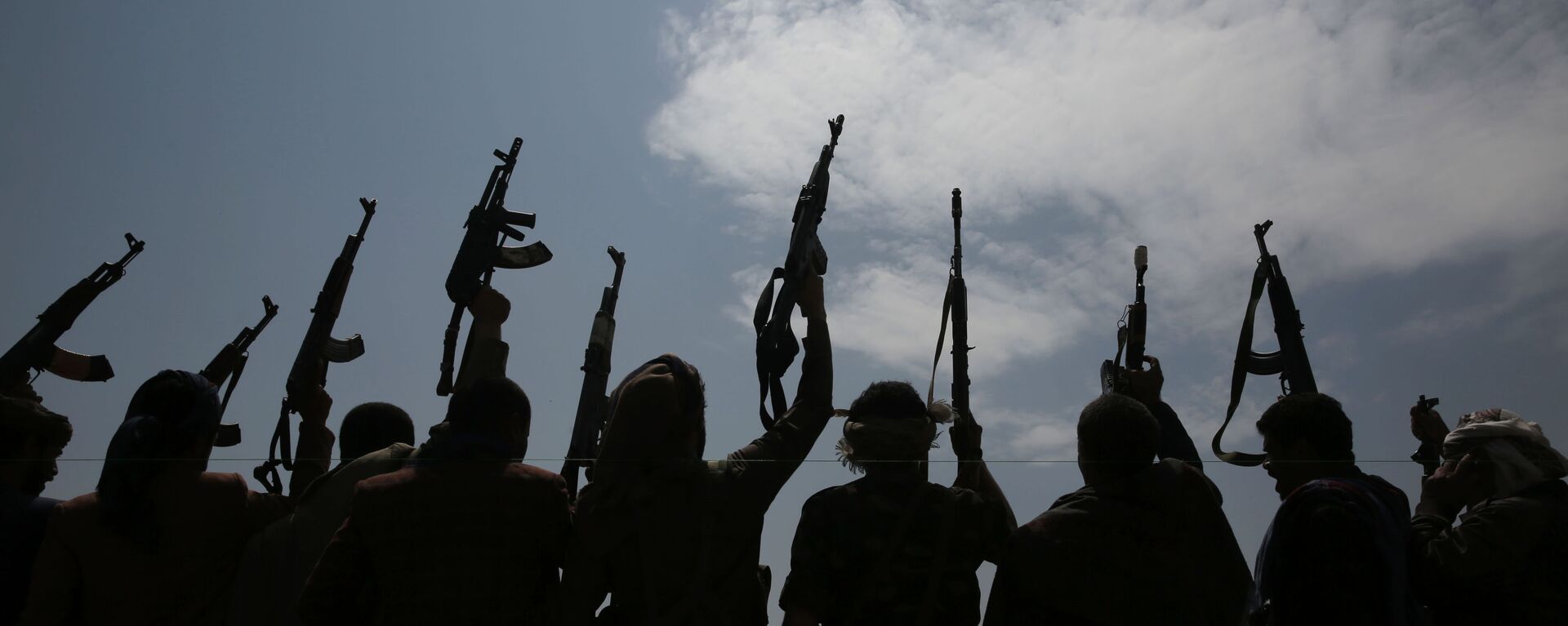Ex-Pentagon Analyst Warns US Stretched Thin on Ukraine, Israel and Taiwan Fronts

© AP Photo / Mass Communication Specialist 2nd Class Danilo Reynoso
Subscribe
Washington has to deal with challenges on multiple fronts in Eastern Europe, the Middle East and in the Asia Pacific simultaneously, Michael Maloof, former senior security policy analyst in the Office of the Secretary of Defense, told Sputnik.
Team Biden and its neoconservative allies have a lot on their plate as the Kiev regime appears to have lost in Washington's proxy war; the Israel-Hamas war is spiraling out of control; and Beijing has made it crystal clear that it will reunify with Taiwan, according to Michael Maloof.
The [Ukrainian] counteroffensive has failed," Maloof told Sputnik. "So they're going to be on defensive and try to hold positions. (…) Zelensky is caught between a rock and a hard place because he knows if he relents and wants to negotiate a settlement, he will be taken out. Simple as that. (…) Ukraine right now basically has lost the war. It's just a holding pattern for them. And they need to come to that realization and deal with it. And the Europeans and the United States, members of Congress particularly, are seeing this. And why throw good money after bad?"
The Biden White House is trying hard to keep the Ukraine issue alive, with the US president claiming that Russia would invade NATO members if the Kiev regime is defeated. However, it appears that no one is buying into this narrative, as the US public support to Ukraine is dwindling and US military and intelligence veterans openly ridiculing Biden's "Russia threat" narrative.
On another front, in the Middle East, Houthi militants have snubbed Washington's announcement about the formation of a 10-nation strong alliance to safeguard commerce in the Red Sea and proceeded with the attacks on trade ships.
The Houthis have recently stepped up their missile and drone attacks in the sea, disrupting global commerce, in a bid to force Israel into halting its ground operation in Gaza that has claimed the lives of around 20,000 Palestinians.
Maloof pointed out that even though the Red Sea remains an important trade route for Saudi Arabia, the United Arab Emirates (UAE) and other Gulf kingdoms, only Bahrain has jumped on the US' Operation Prosperity Guardian bandwagon. "This really shows the political delicacy surrounding all of this," the former defense analyst pointed out.
The Economist noted that previously Riyadh would have probably welcomed Washington's anti-Houthi initiative, but presently they want to end their war with the Yemeni Shiite militants. In April 2022, Saudi Arabia agreed to a two-month ceasefire with the Houthis and extended it twice. The truce largely remains in effect, even though it formally ended in October 2022. The warring sides have spent months reaching a compromise, and it seems that Riyadh does not want to disrupt the peace initiative, according to the newspaper.
While the Houthis are continuing to raise the stakes in the Red Sea, Israel-Hezbollah tensions are steadily mounting, too, according to Maloof. The military expert explained that Houthi rebels and Hezbollah see Hamas as part of the Axis of Resistance. Given that Hamas appears to be losing ground amid Israel's assertive military push, the Houthis and Hezbollah are intensifying their military actions against the Jewish state, he maintained.
"I'm told today by my contacts in Lebanon that fighting has actually intensified. And the Israelis have actually, in effect, presented an ultimatum to the Lebanese and to Hezbollah that if they didn't move north of the Litani River, which is in southern Lebanon, that they were going to move into the region. And already I know one of my one of my contacts' villages is being bombed now. So it's escalating, and the escalation is happening on an accelerated basis. And that's what we've got to be concerned about," Maloof underscored.
The Ukraine defeat and Middle Eastern escalation are "becoming more complicated for US leaders and military leaders, especially juggling the finances," he stressed.
"The money is not there. The funding is not there. And they do have contingency funds in the Pentagon budget worth billions. They probably could pull from that on a temporary basis. They can always increase it later on through supplementals. But we can't even get a defense budget passed at this point," he emphasized.
On top of that, Chinese President Xi Jinping Xi told his US counterpart Biden during a meeting on the sidelines of the APEC summit in San Francisco that China would reunite with Taiwan Island. Beijing considers Taiwan to be an unalienable part of the People's Republic territory, while Washington is backing the Taiwanese government, fanning secessionist sentiment and has recently stepped up the island's militarization.
"Xi Jinping just told Biden in San Francisco recently that he was going to take Taiwan by any means necessary. So that's on notice. This is accelerating, this is compounding. And we need to reevaluate what our strategic posture is going to be in the world. And we're not doing that. We only dig ourselves into a deeper hole, thanks to the neo-conservatives whose policy direction over time has put us in these positions," Maloof insisted.
"We've got to change our approach and our strategic outlook on life and pick and choose where we do what we do and where we go and start trying to make some friends for a change. Everywhere we go, we're bombing people. And, you know, you have other countries that want to develop their countries and have a better quality of life. You see this with the Belt and Road Initiative. Why can't we do something like that? Maybe show economic strength instead of military strength?" he mused.







